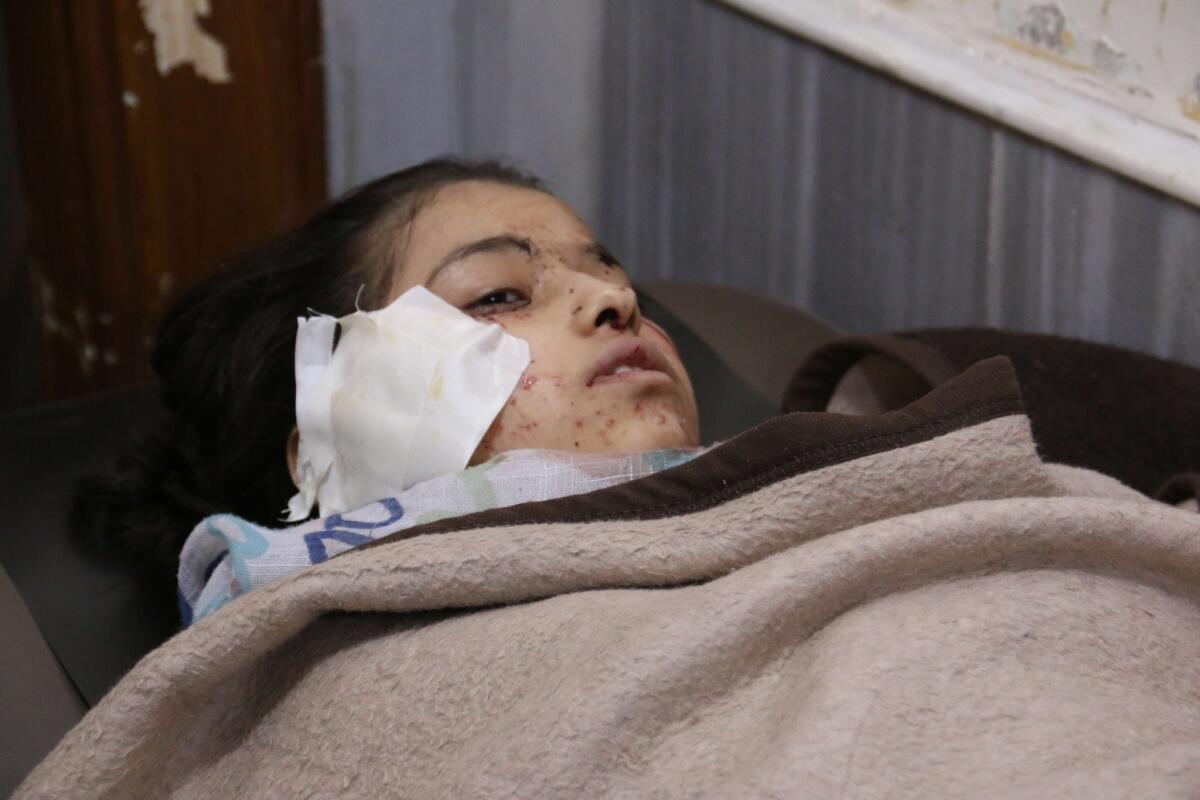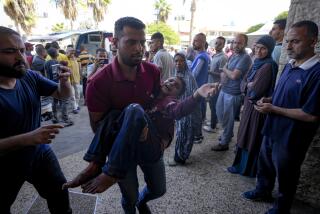Syrian airstrike on Aleppo school kills students, others

Reporting from Los Angeles â An elementary school in the Syrian city of Aleppo was struck by a missile from a government jet Wednesday morning, killing at least 19 people, most of them children, opposition activists said.
Hundreds of students from various schools in the neighborhood had gathered at the Ein Jalout school for a childrenâs community art exhibit when the missile hit, opposition media groups reported. The school was struck with what activists and emergency responders described as a âvacuum missile,â which causes massive destruction.
The attack came two days after the Syrian government and rebels struck a rare agreement in the northern province of Aleppo to restore electricity in exchange for an end to military attacks on civilians, especially the indiscriminate use of barrel bombs by the government.
Video taken at the school Wednesday showed blood-soaked classrooms and hallways and civil defense first-responders peering into the rubble calling for survivors, âIs anyone here? Can anyone hear me?â
As they searched through the rubble, they said dozens were still missing.
Much of the hand-drawn and painted artwork still hung in some classrooms: images of tanks, soldiers and doves carrying the opposition Syrian flag, according to video from the scene.
In response to attacks in previous days that targeted schools and children in other parts of Syria, UNICEF released a statement condemning all indiscriminate assaults on civilians.
âEvery day, across Syria, children who are simply trying to go about their everyday lives are being killed and maimed by indiscriminate attacks on populated areasâ, said Maria Calivis, UNICEF regional director for the Middle East and North Africa.
More to Read
Sign up for Essential California
The most important California stories and recommendations in your inbox every morning.
You may occasionally receive promotional content from the Los Angeles Times.











